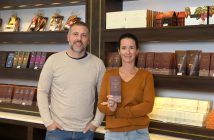It’s Dandelion Chocolates, the first to produce bean to bar chocolates with special cocoa from around the world, in a factory open seven days a week to the public in San Francisco, California
Once upon a time there were two friends who met in the vast universe of tech companies in San Francisco: Tod Masonis and Cameron Ring, who joined efforts in 2010, in a garage, to sell, guess what, artisanal chocolates, later baptized Bean to Bar, “from the bean right to the bar”.
Since the beginning of their operation, the goal has always been to make chocolate bars using only cocoa and sugar, and nothing else. And to respect the natural flavor variations of the fruit. Yes, cocoa is a fruit! Just like coffee! So, a cocoa chocolate from Mexico will never be the same as a cocoa chocolate from Tanzania, for example. It is not that one might be better than the other, they just have different characteristics. Their premise was to always buy cocoa “in loco”, in order to attest its quality and especially the sustainability of their business.

Dandelion Chocolate
To do that, they hired a former technology executive, previously at Google, Greg D’Alesandre, as Chief Sourcing Officer, whose mission is to travel around the globe to discover the best cocoa beans available in the world. Greg has been in Brazil three times visiting cocoa farms in the State of Bahia and has given us an exclusive interview, which you can read below.
One of Greg’s functions during his travels is to help cocoa growers improve the quality of their production in order to sell them at a much more advantageous price. Dandelion also publishes a report with the prices paid for each cocoa bag. Much like what we see in the specialty coffee market. “Right from the start we have always believed that only by doing this, by ensuring growers’ business sustainability and establishing a transparent relationship, the chocolate market would survive,” explained that businessman.
“From the moment chocolate started to be industrialized, people said that any variation in flavor was a flaw, it had to have a unique flavor. To achieve the same flavor, then, people have been employing many subterfuges to manipulate flavor, such as acidulants, preservatives, tons of sugar, vanilla, soy lecithin, and etc.”
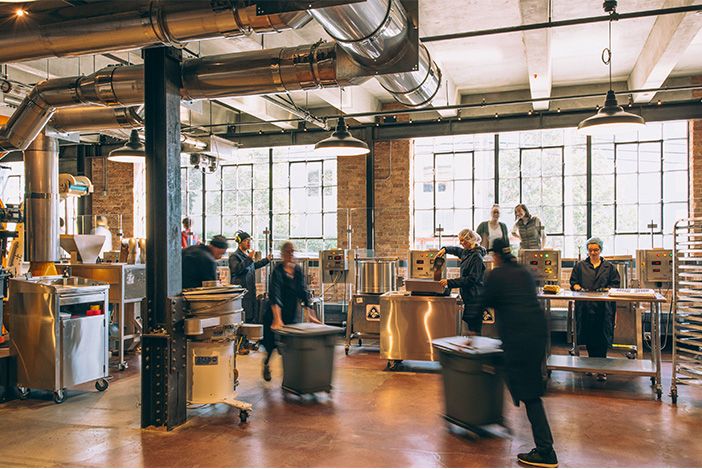
Dandelion Chocolate
The American market
Less than a decade later, it has been estimated there are already more than 200 manufacturers in the US. And Dandelion has come out of the garage and grown a lot. Currently, it has 11 premises, with one outlet in Los Angeles, two factories in San Francisco, one of them, the newest one, recently inaugurated in the district of Mission, with 28 thousand square meters. The facility’s architectural design was assigned to the famous Gensler office, www.gensler.com, responsible for grandiose projects around the world, such as Condé Nast’s office, in the One World Trade Center in New York, the Shanghai Tower in China, Facebook’s central offices in Menlo Park, and the JK Shopping Mall in Sao Paulo, among others.
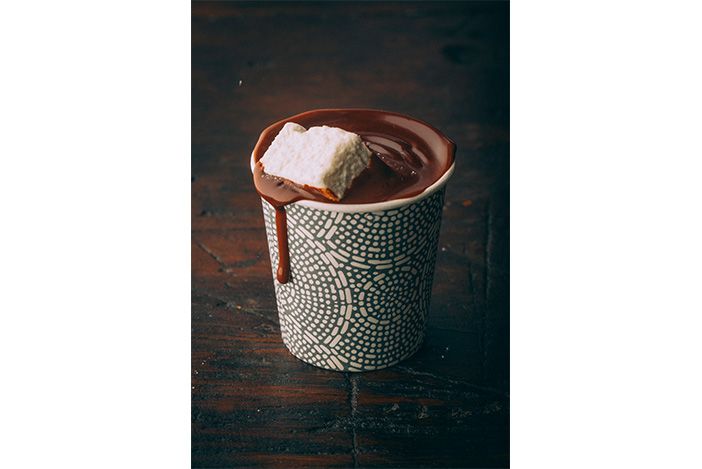
Dandelion Chocolate
Outside the US, Dandelion has a considerable operation in Japan, including a plant and five outlets, in addition to a unit in Taiwan, the only cocoa producing country to also include a store. And a production of 300 thousand bars per month, using cocoa from Tanzania, Costa Rica, Ecuador, Peru, Colombia, Honduras, Taiwan, Thailand, Vietnam, India, Madagascar, Sierra Leone, Belize and Guatemala. “We always work with 12 different origins on our shelves,” said Greg.
The new factory, located in the district of Mission in San Francisco, also houses a café, a restaurant with an eight-course tasting menu and à la carte delights, created by Chef Lisa Vega. It is Bloom, a chocolate salon serving breakfast and afternoon tea, and whose menu is dedicated to chocolate. Their website www.sfeater.com was included in July 2019 in a list of the coolest places to enjoy brunch in San Francisco.
But if you just want to stroll through the store, Dandelion offers to its customers samples of all the chocolates made in their premises, in addition to a large assortment of coffees. And, to complete that, it has an exclusive space dedicated to courses and lectures whose main purpose is to educate the American public on Bean to Bar chocolate production, a market still under development.
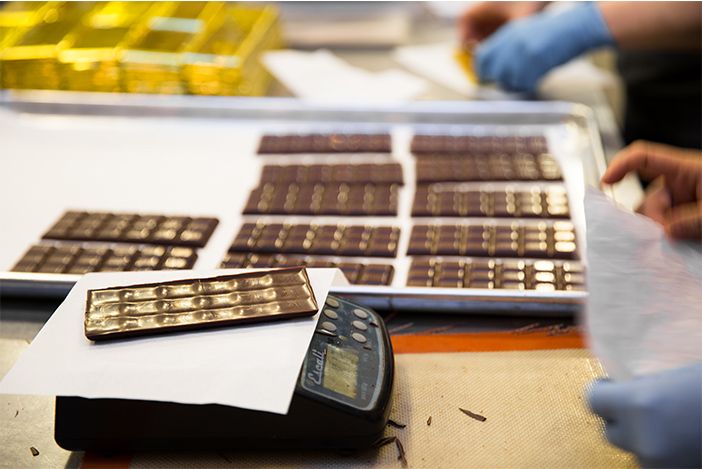
The new outlet’s success has been so great that they have had to ration the sales of chocolate bars: just 10 to 12 bars per day, per customer.
As for the space dedicated to chocolate making, it is open to customers’ view, separated only by glass cloths. And it couldn’t be otherwise, since technology plays a very important role there. Their equipment already uses artificial intelligence to select the best grains, those without any flaw, through optical reading, and so on.
Dandelion is an inspiration to chocolate makers in Brazil
Throughout its history, Dandelion has been the greatest source of inspiration to 10 out of 10 Brazilian chocolate makers. In addition to helping transform the chocolate market, while changing the relationship between cocoa growers and chocolate makers, to make it more transparent, the company is also willing to help other small Bean to Bar producers.
Arcelia Gallardo, owner of Mission chocolate (read an article about the company by accessing the link), for example, worked there for a year, learning how to make chocolate, before opening her own company in Brazil. “We don’t see other chocolate makers as competitors, but as professionals who are helping the world to change their view about cocoa and Bean to Bar chocolates,” she emphasized.

When Dandelion started making their Bean to Bar chocolates, there were, throughout the U.S., only 10 other factories making chocolates the same way.
Read the exclusive interview web portal Grão Especial has made with Dandelion’s Chief Sourcing Officer, Greg D’Alesandre.
Grão Especial – Since your mission is to travel around the world to find the best cocoa beans, how is your routine? How many times do you travel, in average, every year?
Greg D’Alesandre – In average, I go on a trip 12 times every year, to visit cocoa producing countries. But I try to make planned trips. For example, for the next one, I will visit Taiwan and Thailand, which are neighboring countries. But that’s a part of my job that gives me a lot of pleasure.
Grão Especial – You have been to Brazil three times, also to visit cocoa farms in southern Bahia. How do you perceive the quality of Brazilian cocoa?
Greg D’Alesandre – The Bean to Bar chocolate scene in Brazil pleases me very much. You are very privileged, since you have the whole chain: producers, chocolate makers and a consumer market. I love to go to Brazil because it’s a unique opportunity to meet people. In the U.S., when we go to events and fairs, we even get to meet some producers, but it is very sporadic. Now, to answer your question, I believe your country is doing an excellent job. After losing leadership as the largest producers, local producers suffered a lot from the witch’s broom disease. But, after all, it has been a positive experience, because I see producers now are very concerned with quality. The evolution in the quality both of cocoa beans and chocolates in Brazil has been surprising. And consistent. I don’t see that in other producing countries. I see isolated cases, but not a joint effort by the whole production chain.
Grão Especial – But still, they do not make chocolate bars using Brazilian cocoa…
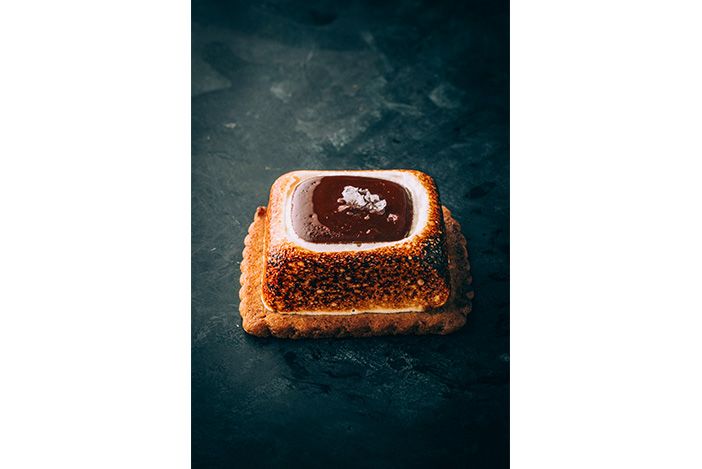
Dandelion Chocolate
Greg D’Alesandre – It’s only a matter of time. I’ve visited six or seven farms and we have already chosen our supplier. It will be the Potumuju Farm, in southern Bahia. But they still haven’t been able to produce the amounts Dandelion requires. But we are very anxious to work with Juliana and Tuta Aquino, (read an article on the Potumuju Valley in the link). It’s much more about being able to establish a long-term partnership, they do not have a large production yet, but their quality is excellent.
Grão Especial – How long have you been working with chocolates?
Greg D’Alesandre – Actually, I’ve been in love with chocolates all through my life. Chocolate was my hobby. As a teenager, I enjoyed making my own chocolates. When I went to college, I made once some ganache bonbons and put too much alcohol in the recipe, you know? I went to the lab and did some experiments, I cooled the ganache too much, but it did not work very well!! But the truth is that, since I didn’t have much money and needed to find a way of paying the college loan, I enrolled in an Engineering course and went to work in the technology market, where I remained for 25 years, including at Google. But my passion has always been chocolate. I’ve always waited for the best opportunity to work with my passion. When I left Google, I started my own company, but in 2011 I met Dandelion’s partners and in the following year I started working with them. And the funny thing is, although we came from the same background, I had never met them when I was in the technology business. We joined our efforts, each one doing what he likes most, and voilà!
Grão Especial – What is the relationship between technology and chocolates?
Greg D’Alesandre – Not much, of course! But passions are just like that, unexplainable. And that’s the truth. I needed money to be able one day to work with chocolates.
Grão Especial – Did you know, when you were attending High School, that chocolate comes from a fruit?
Greg D’Alesandre – No, I didn’t know that. I didn’t know anything at all, I’d never seen a cocoa plant. In 1995, people didn’t make chocolates, they only bought it from the big industry. I was living in San Francisco, I went to visit Scharffen Berger, the first artisanal chocolate factory in the US, later acquired by The Hershey Company. That was the first time I saw chocolate being made. In detail. And I needed to understand the details. No one talked about where cocoa beans came from, or how chocolate was made, and I have always found that details are very important.

Dandelion Chocolate
Grão Especial – Arcelia Gallardo, from Mission Chocolate, has confessed that before making Bean to Bar chocolates she loved Twixx. And what about you, what was your favorite one?
Greg – Oh, it was M&M, and actually I still love M&M, because it is much more like a candy than chocolate.
Grão Especial – At Dandelion, did you already start as a Chief Sourcing Officer?
Greg D’Alesandre – No, when I started at Dandelion, we were just five people, we did a little bit of everything. That’s my official title, but when you work in a small company, you have to do a lot of other things too. But someone needs to find out which are the best fruits. And we need to establish a good partnership with producers and add real value to the chain. When we started, we didn’t have a broad market view, we just wanted to make the best possible chocolate and in the most sustainable manner.
Grão Especial – Very different from the big industry…
Greg D’Alesandre – Sure. We needed to make sure that the cocoa growers who became our suppliers performed well in every aspect. We came from another market, with another view about things. Our vision for sustainability, for example, is much more comprehensive. Sustainability is not only about leaving forests untouched, safe, but also making sure that cocoa producers are getting a fair price for their product. And that price will enable them to perpetuate production. We just think we’re doing business in the only possible way we can. No big deal!

Dandelion Chocolate
Grão Especial – And I assume Dandelion pays producers better than other companies.
Greg D’Alesandre – No doubt. We publish an online report available to anyone, describing how much has been paid for every cocoa bag. In average, we pay US$ 650, while the market pays around US$ 250
Grão Especial – By the way, the relationship between producers and the international market tends to be quite perverse, doesn’t it?
Greg D’Alesandre – Yes. Cocoa is produced in poor or developing countries. And chocolate is produced on a large scale in industrialized countries. There is a certain colonialism in the business that has persisted up to the present day. Value perception is still very frail. And the industry still treats cocoa as just a commodity. I believe in change. In our minds, it is much more reasonable that we travel to know crops in loco, not the other way around, right? In the same way, producers don’t ask whether an industry has been certified. I’m not saying certifications are terrible, I just think they’re unfair to the weakest link of the production chain.
Grão Especial – It’s hard to change that, isn’t it? People even know it’s an unfair relationship, but…
Greg D’Alesandre – Yes, but things are changing and we, from the Bean to Bar chocolate industry, have an important stake in it. The quality of cocoa production, globally speaking, has been improving considerably. People from all around the world, even if still on a small scale, are trying to consume better quality products, including chocolate. And there’s a predisposition to pay better for cocoa. And I think we need to promote transparency in the entire production chain. Then, yes, we’ll change that relationship.

Dandelion Chocolate
Grão Especial – Do you believe we are going to see the same development in the chocolate sector as in the case of specialty coffees, a large consumption growth?
Greg D’Alesandre – Yes, definitely. I think the movement is the same. But we’re a little late. Back then, it was Starbucks that raised the price of coffee beans served in cups. We need a similar development in the world of Bean to Bar chocolates. I guess that will happen within the next three to four years.
Grão Especial – Is chocolate more complex than coffee?
Greg D’Alesandre – Yes, I do believe chocolate is more complex than coffee due to the oxidation process. But if you ask a baker who makes natural bread, he’ll tell you that his product is more complex than the other ones. It will be the same if you ask that to a wine producer.
Grão Especial – Does the average American know what Bean to Bar chocolate is?
Greg D’Alesandre – No, not yet. That’s why we have a huge market to explore and that’s very good.

Dandelion Chocolate
Grão Especial – I see you have decided to grow your operation on the West coast of the US. Why?
Greg D’Alesandre – For us, in geographic terms, it’s easier to have an operation in Japan than in Europe, it’s closer. In addition to that, our partner in Japan has a strong influence on other Asian countries as well. Not to mention the shipping costs.
Grão Especial – Are you planning to open an outlet in Brazil?
Greg D’Alesandre – Who knows, at the right time. It must be in cities like Sao Paulo, with a large consumer market. We have also thought about starting an operation in Mexico, in Mexico City, which also has a large market, but it is too early to take that step. Of course, we want to grow, but making sure we won’t compromise the quality of our chocolate bars.
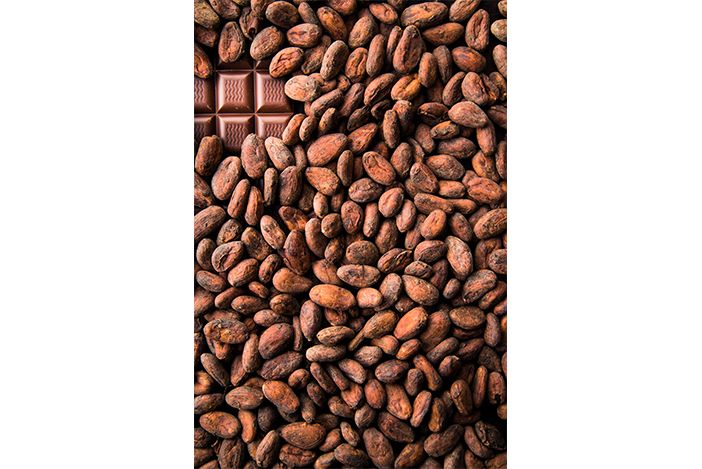
Dandelion Chocolate
Grão Especial – What message would you like to send to Brazilian producers?
Greg D’Alesandre – For us, it is important that a producer also knows how to make his own chocolate, so that he can test and improve the quality of cocoa beans. And I also would like to say that, although we see a horizon of great growth, it is important that producers understand that the market is still unable to absorb all the special cocoa production available around the world. That is, the Bean to Bar chocolate industry is not growing at the same pace as fine cocoa production. It’s important to pay attention to that.
Grão Especial – Do Americans enjoy Brazilian chocolate?
Greg D’Alesandre – Well, people buy chocolates for many reasons. Our Mexican customers, for example, are very proud to buy our chocolates made from cocoa produced in Mexico. For Americans, Brazil is an exotic country, and they like to try exotic flavors. We’ve never had a chocolate bar from a certain origin getting stranded. We’ve always sold everything!
Photos and video: Dandelion


